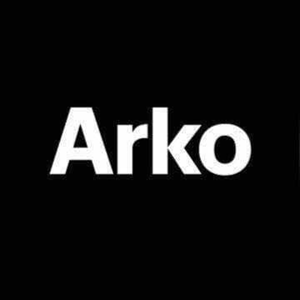When I tried to run it again I got this :
PS C:\WINDOWS\system32> az containerapp up --name $API_NAME --resource-group $RESOURCE_GROUP --location $LOCATION --environment $ENVIRONMENT --artifact c:\aiworkerz-0.0.1-SNAPSHOT-PREVIOUS.jar --ingress external --target-port 8080 --subscription $SUBSCRIPTION
Argument '--artifact' is in preview and under development. Reference and support levels: [https://aka.ms/CLI_refstatus]()
The behavior of this command has been altered by the following extension: containerapp
Using resource group 'AIWorkerzTest'
Using ContainerAppEnvironment 'env-aiworkerz' in resource group AIWorkerzTest
Using the Cloud Build Service to build container image...
Preparing the Azure Container Apps Cloud Build environment
(✓) Done: Listing the builders available in the Container Apps environment (1.5s)
Builder selected: artifact-builderbc3b
(✓) Done: Getting the Container App (1.1s)
Building the application
(✓) Done: Retrieving the authentication token (1.4s)
(✓) Done: Uploading data (38.3s)
(X) Fail: Waiting for the Cloud Build agent to report status (689.3s)
('Connection aborted.', RemoteDisconnected('Remote end closed connection without response'))
Full logs: C:\Users\marcu\AppData\Local\Temp\builddeeffd6.txt
The command failed with an unexpected error. Here is the traceback:
('Connection aborted.', RemoteDisconnected('Remote end closed connection without response'))
Traceback (most recent call last):
File "D:\a\_work\1\s\build_scripts\windows\artifacts\cli\Lib\site-packages\urllib3/connectionpool.py", line 715, in urlopen
File "D:\a\_work\1\s\build_scripts\windows\artifacts\cli\Lib\site-packages\urllib3/connectionpool.py", line 467, in _make_request
File "<string>", line 3, in raise_from
File "D:\a\_work\1\s\build_scripts\windows\artifacts\cli\Lib\site-packages\urllib3/connectionpool.py", line 462, in _make_request
File "http\client.py", line 1428, in getresponse
File "http\client.py", line 331, in begin
File "http\client.py", line 300, in _read_status
http.client.RemoteDisconnected: Remote end closed connection without response
During handling of the above exception, another exception occurred:
Traceback (most recent call last):
File "D:\a\_work\1\s\build_scripts\windows\artifacts\cli\Lib\site-packages\requests/adapters.py", line 667, in send
File "D:\a\_work\1\s\build_scripts\windows\artifacts\cli\Lib\site-packages\urllib3/connectionpool.py", line 801, in urlopen
File "D:\a\_work\1\s\build_scripts\windows\artifacts\cli\Lib\site-packages\urllib3/util/retry.py", line 552, in increment
File "D:\a\_work\1\s\build_scripts\windows\artifacts\cli\Lib\site-packages\urllib3/packages/six.py", line 769, in reraise
File "D:\a\_work\1\s\build_scripts\windows\artifacts\cli\Lib\site-packages\urllib3/connectionpool.py", line 715, in urlopen
File "D:\a\_work\1\s\build_scripts\windows\artifacts\cli\Lib\site-packages\urllib3/connectionpool.py", line 467, in _make_request
File "<string>", line 3, in raise_from
File "D:\a\_work\1\s\build_scripts\windows\artifacts\cli\Lib\site-packages\urllib3/connectionpool.py", line 462, in _make_request
File "http\client.py", line 1428, in getresponse
File "http\client.py", line 331, in begin
File "http\client.py", line 300, in _read_status
urllib3.exceptions.ProtocolError: ('Connection aborted.', RemoteDisconnected('Remote end closed connection without response'))
During handling of the above exception, another exception occurred:
Traceback (most recent call last):
File "D:\a\_work\1\s\build_scripts\windows\artifacts\cli\Lib\site-packages\knack/cli.py", line 233, in invoke
File "D:\a\_work\1\s\build_scripts\windows\artifacts\cli\Lib\site-packages\azure/cli/core/commands/__init__.py", line 666, in execute
File "D:\a\_work\1\s\build_scripts\windows\artifacts\cli\Lib\site-packages\azure/cli/core/commands/__init__.py", line 734, in _run_jobs_serially
File "D:\a\_work\1\s\build_scripts\windows\artifacts\cli\Lib\site-packages\azure/cli/core/commands/__init__.py", line 726, in _run_job
File "C:\Users\marcu\.azure\cliextensions\containerapp\azext_containerapp\_client_factory.py", line 28, in _polish_bad_errors
raise ex
File "D:\a\_work\1\s\build_scripts\windows\artifacts\cli\Lib\site-packages\azure/cli/core/commands/__init__.py", line 703, in _run_job
File "D:\a\_work\1\s\build_scripts\windows\artifacts\cli\Lib\site-packages\azure/cli/core/commands/__init__.py", line 336, in __call__
File "D:\a\_work\1\s\build_scripts\windows\artifacts\cli\Lib\site-packages\azure/cli/core/commands/command_operation.py", line 120, in handler
File "C:\Users\marcu\.azure\cliextensions\containerapp\azext_containerapp\custom.py", line 1322, in containerapp_up
force_single_container_updates = app.run_source_to_cloud_flow(source, dockerfile, build_env_vars, can_create_acr_if_needed=True, registry_server=registry_server)
^^^^^^^^^^^^^^^^^^^^^^^^^^^^^^^^^^^^^^^^^^^^^^^^^^^^^^^^^^^^^^^^^^^^^^^^^^^^^^^^^^^^^^^^^^^^^^^^^^^^^^^^^^^^^^^^^^^^^^^^^^^^^^^^
File "C:\Users\marcu\.azure\cliextensions\containerapp\azext_containerapp\_up_utils.py", line 747, in run_source_to_cloud_flow
self.image = self.build_container_from_source_with_cloud_build_service(source, build_env_vars, location)
^^^^^^^^^^^^^^^^^^^^^^^^^^^^^^^^^^^^^^^^^^^^^^^^^^^^^^^^^^^^^^^^^^^^^^^^^^^^^^^^^^^^^^^^^^^
File "C:\Users\marcu\.azure\cliextensions\containerapp\azext_containerapp\_up_utils.py", line 559, in build_container_from_source_with_cloud_build_service
raise exception
File "C:\Users\marcu\.azure\cliextensions\containerapp\azext_containerapp\_up_utils.py", line 556, in build_container_from_source_with_cloud_build_service
return run_cloud_build(self.cmd, source, build_env_vars, location, resource_group_name, self.env.name, container_app_name, run_full_id, logs_file, logs_file_path)
^^^^^^^^^^^^^^^^^^^^^^^^^^^^^^^^^^^^^^^^^^^^^^^^^^^^^^^^^^^^^^^^^^^^^^^^^^^^^^^^^^^^^^^^^^^^^^^^^^^^^^^^^^^^^^^^^^^^^^^^^^^^^^^^^^^^^^^^^^^^^^^^^^^^^^^^^^^
File "C:\Users\marcu\.azure\cliextensions\containerapp\azext_containerapp\_cloud_build_utils.py", line 277, in run_cloud_build
raise error
File "C:\Users\marcu\.azure\cliextensions\containerapp\azext_containerapp\_cloud_build_utils.py", line 180, in run_cloud_build
build_json_content = BuildClient.get(cmd, builder_name, build_name, resource_group_name)
^^^^^^^^^^^^^^^^^^^^^^^^^^^^^^^^^^^^^^^^^^^^^^^^^^^^^^^^^^^^^^^^^^^
File "C:\Users\marcu\.azure\cliextensions\containerapp\azext_containerapp\_clients.py", line 1038, in get
r = send_raw_request(cmd.cli_ctx, "GET", request_url)
^^^^^^^^^^^^^^^^^^^^^^^^^^^^^^^^^^^^^^^^^^^^^^^^^
File "D:\a\_work\1\s\build_scripts\windows\artifacts\cli\Lib\site-packages\azure/cli/core/util.py", line 1038, in send_raw_request
File "D:\a\_work\1\s\build_scripts\windows\artifacts\cli\Lib\site-packages\requests/sessions.py", line 703, in send
File "D:\a\_work\1\s\build_scripts\windows\artifacts\cli\Lib\site-packages\requests/adapters.py", line 682, in send
requests.exceptions.ConnectionError: ('Connection aborted.', RemoteDisconnected('Remote end closed connection without response'))
To check existing issues, please visit: [https://github.com/Azure/azure-cli/issues]()
PS C:\WINDOWS\system32>









